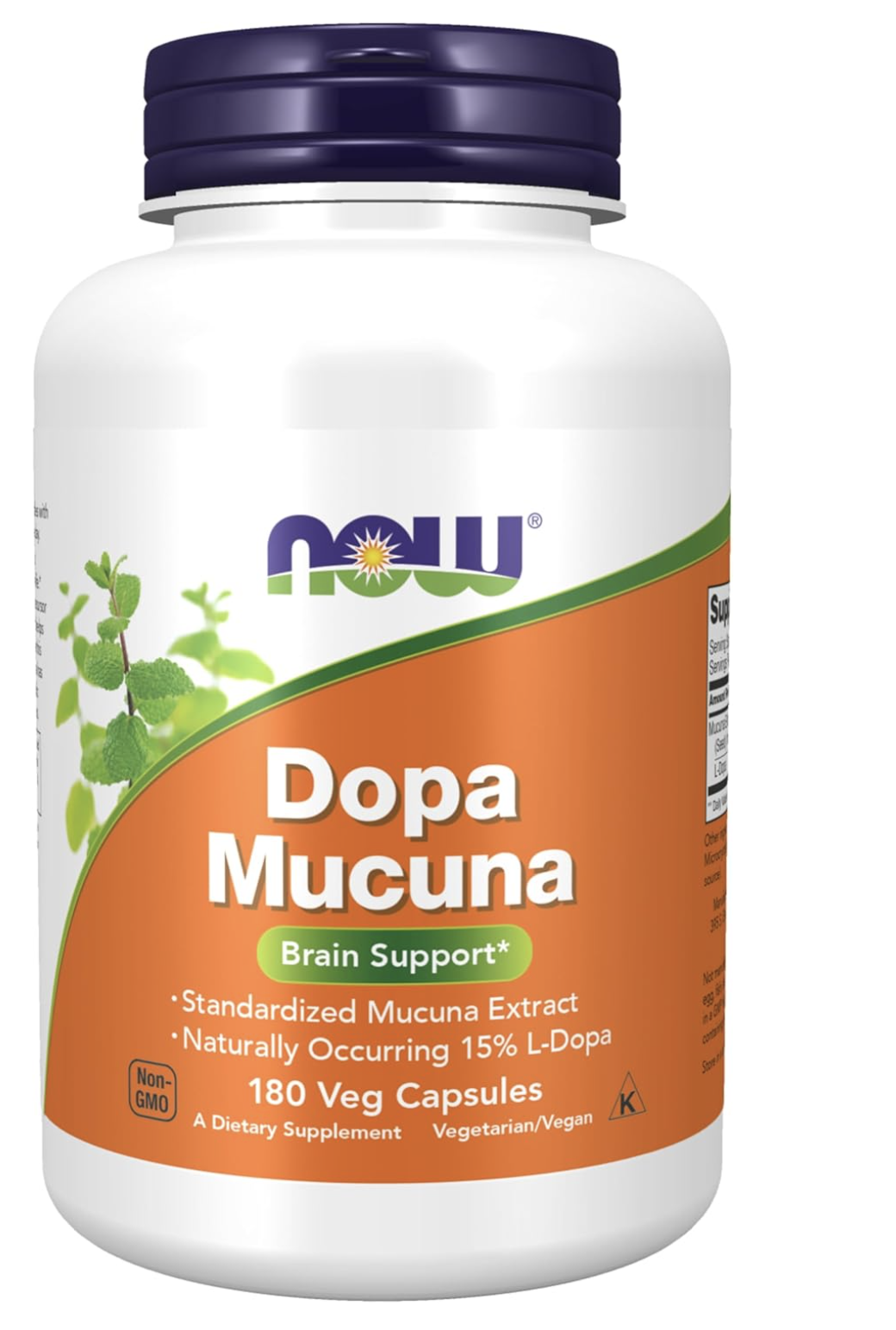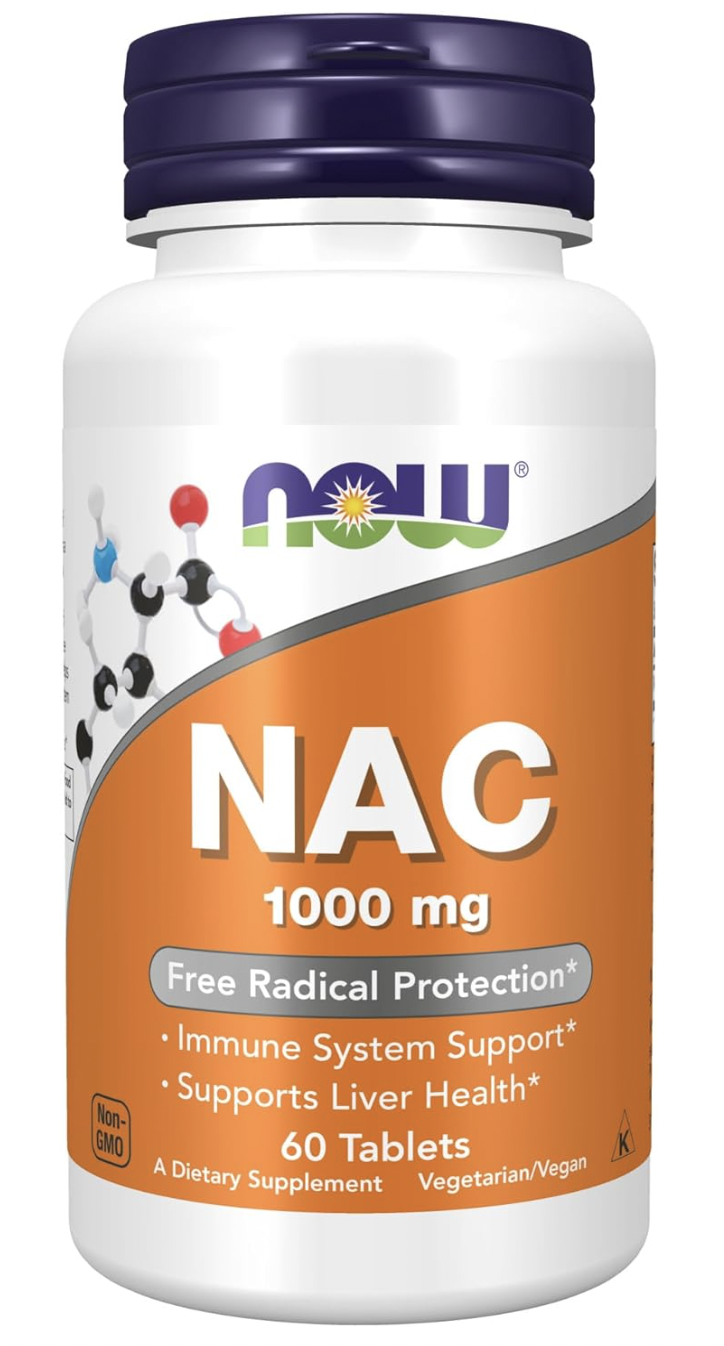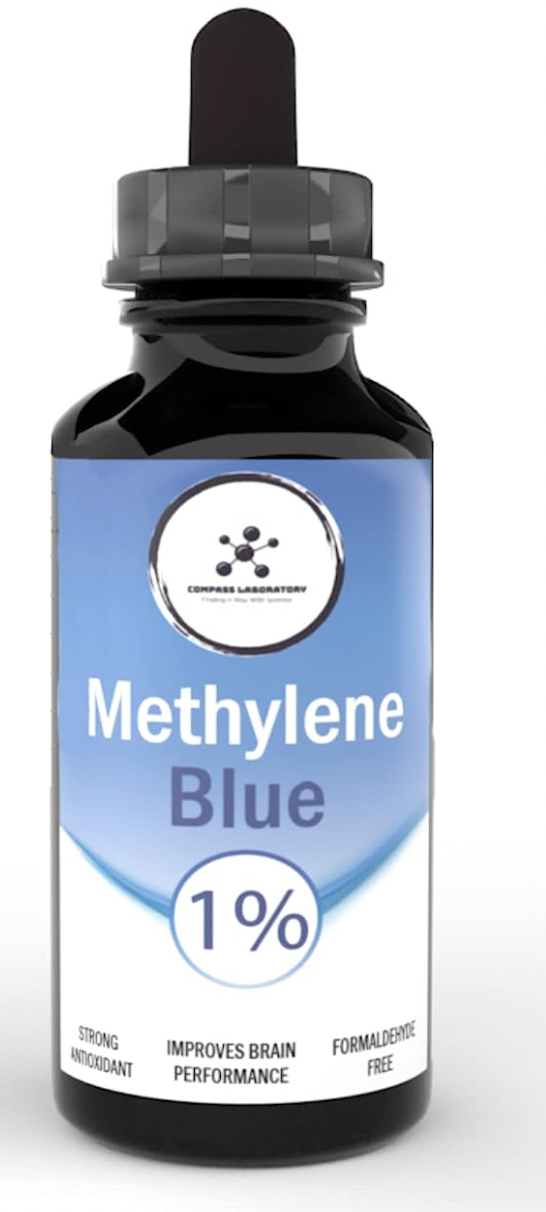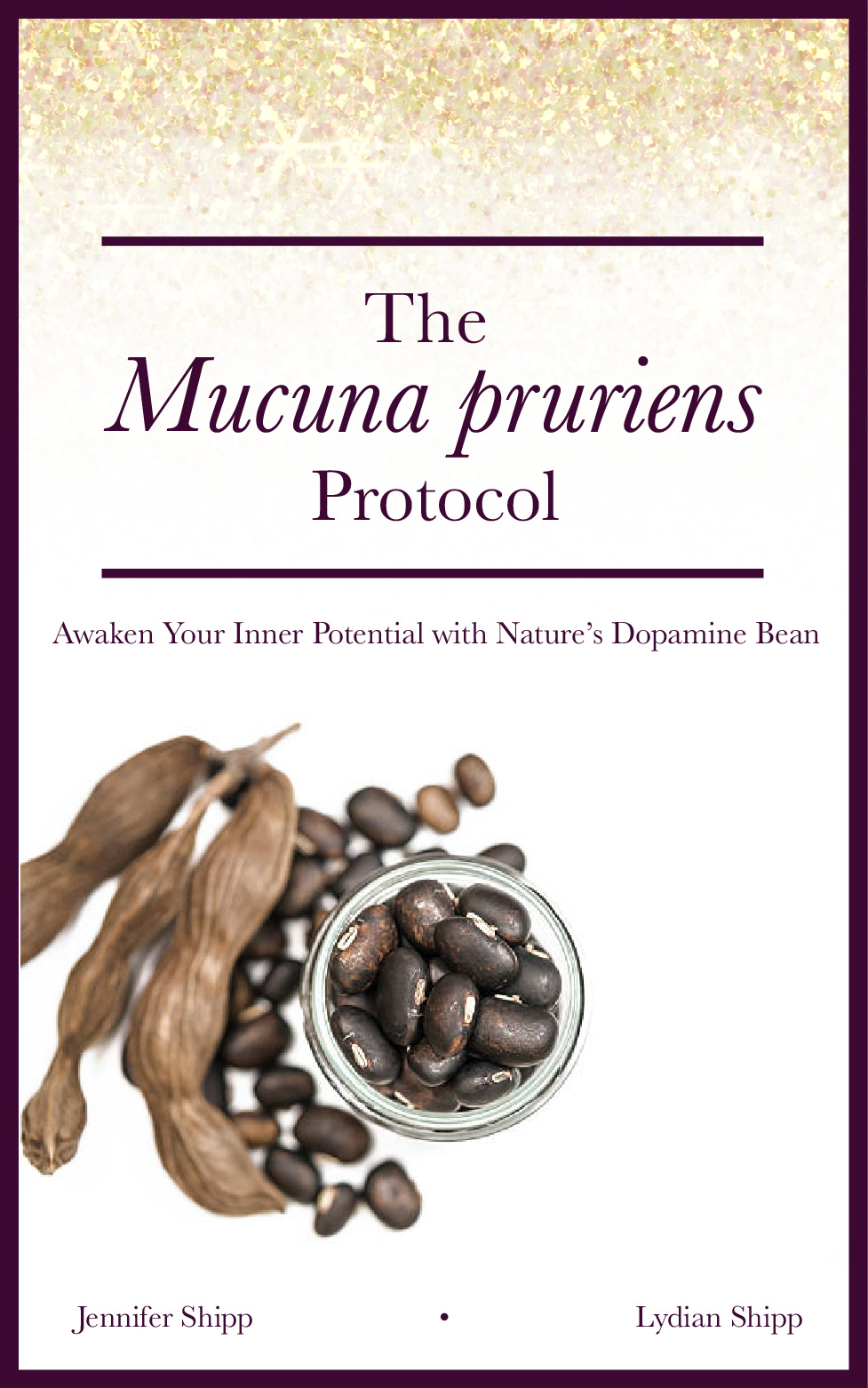Methylene Blue for Dementia: A Protocol That Stops Alzheimer's and Parkinson's Disease in Its Tracks...
WARNING: DO NOT USE METHYLENE BLUE IF YOU HAVE A G6PD DEFICIENCY, A LIVER, OR A KIDNEY DISORDER. DO NOT USE METHYLENE BLUE IF YOU ARE PREGNANT OR LACTATING. My uncle was diagnosed with Lewy Body Dementia just shortly after Robin Williams took his own life as a result of this disease and the symptoms it causes. My uncle’s wife is a nurse, so she was familiar with Parkinson’s, but despite having close relationships with doctors at the hospital where she’d worked her whole life, she still knew of nothing that could help her husband with Lewy Body Dementia. When I was in high school and during my pre-med undergraduate days at the University of Nebraska, I also worked with Parkinson's patients as a nursing assistant and as a "shadow" of several psychiatrists. At that time my goal was to become a psychiatrist myself. After 5 years working in long-term care facilities though, I'd started seeing the limitations not just of psychiatry, but also of conventional medicine as a whole in terms of treating dementia. It would be many years before Lydian and I would put together an entirely different model (based on various systems of medicine like Traditional Chinese Medicine, Endobiogeny, Ayurveda, trauma-informed therapies, and more) of what causes Parkinson's, Lewy Body Dementia, Amyotrophic Lateral Sclerosis, and Alzheimer's. In this article, we're going to discuss a protocol to give patients a sense of control over their symptoms. Note, however, that in order to overcome dementia, treatment must include the sacred medicines and intensively trauma-release along with medicines for the body. This protocol, however, is a first step.A Note on How to Treat Lewy Body Dementia Naturally
The idea that Lewy Body Dementia and Parkinson’s Disease are related disorders isn’t common knowledge, but it’s an important fact if you’re searching for treatment options for Lewy Body Dementia. These two diseases belong to the same Disease Family Tree. Lewy Body Dementia is a relatively recent discovery (first described in 1976 by Kenji Kosaka) so there’s little scientific research that specifically mentions this disease and just a few treatment options that are "known" in conventional medicine. On the other hand, knowledge of Parkinson’s disease has been around much longer (James Parkinson first described this disorder back in 1817) which means that the research is extensive and treatment options have been better studied.As I worked to research Lewy Body Dementia / LBD for my uncle I learned that scientists can see the connection between LBD and Parkinson’s. The scientists who have worked to understand Lewy Body Dementia know that a connection exists even though mainstream conventional medicine doctors are totally left out of this loop. Lewy Body Dementia appears, in fact, to be a manifestation of Parkinson’s Disease wherein the first symptoms are not trembling, but rather symptoms of dementia. As such, Parkinson’s Disease treatments may work to help treat Lewy Body Dementia patients. In terms of my uncle, this became really important when I started reading about Mucuna pruriens (also marketed as the natural, pure version of L-Dopa) which has been used by integrative medicine doctors for quite some time to treat their symptoms. I talk about how to use Mucuna pruriens for Parkinson’s Disease and Lewy Body Dementia in another article, so I won’t go into a lot of depth on that here. What I will say though, is that my uncle experienced some amazing progress when he started taking the Mucuna. His thoughts got clearer and his gait got straighter. The people around him noticed that he was doing much better.

Click here to buy Mucuna pruriens.
Trauma in Parkinson's Disease, Lewy Body Dementia, and Other Forms of Dementia
Lydian and I view Parkinson's disease and Lewy Body Dementia specifically as two sides of the same coin. A person who is more oriented toward the left-brain and a left-brain approach to life (which would be a logical, narrative-orientation), might experience Lewy Body Dementia first before they develop the Parkinsonian tremors, for example. A person who is more oriented toward the right brain and a symbolic, feeling-oriented approach, on the other hand, might develop tremors first and dementia later. Essentially, we view at least one facet of Parkinson's disease and Lewy Body Dementia as an issue in regard to communication between the left-brain and the right-brain. This left-brain-right-brain problem leads to a buildup of trauma in the body. Another way to view this trauma-buildup is from the perspective that trauma is THE THING that causes the left-brain-right-brain communication issue.Below is a video of a polar bear that is shot with a tranquilizer gun. The polar bear is traumatized by this experience and after he wakes up, his body shakes uncontrollably. In trauma-informed psychology, this shaking is regarded as natural. It is the right-brain's way of shaking off trauma and releasing it. We can think of the right-brain as the body and the left-brain as the part of the mind that uses words to speak to us. In any case, trauma that isn't released from the body is stored in the body. When trauma reaches a critical mass, tremors develop as the body's effort to release what it can no longer hold back.
https://www.youtube.com/watch?v=xDlR-wl7iFI
Mucuna pruriens: Herbal Treatment for Parkinson's, etc.
Unfortunately, there’s a lot of misinformation out there about Mucuna pruriens (and L-Dopa supplements), what it is and how it works. A video course on how to work with Mucuna pruriens and supportive nutrients will be available on or before May 15th at this link.The confusion around Mucuna pruriens stems from the fact that there’s a synthetic pharmaceutical known as Levodopa that’s combined with Carbidopa into one product that is known just as “Levodopa” or “L-Dopa”. These two combined pharmaceuticals unfortunately cause serious side effects and they eventually stop working for Parkinson’s patients and Lewy Body Dementia patients. But Mucuna (and natural L-Dopa supplements) is different. Specifically, Mucuna supplements (which may be labeled as L-Dopa), are naturally occurring substances. They have not been synthetically modified in a lab which means that the brain won’t eventually reject them in the same way that the brain eventually rejects synthetic Levodopa (and Carbidopa). Further, Mucuna pruriens is a bean. It’s food. And there are places in the world where people eat the bean every day as part of their staple diet. As a food item that provides an important source of protein to people in Central America and Asia, Mucuna is clearly safe and people don’t suffer the same negative side effects that come about when patients take synthetic Levodopa+Carbidopa over a long period of time.
But again, there’s a lot of misinformation online about Mucuna and natural L-Dopa that’s been extracted from the Mucuna bean. But this bean is one of the most important natural treatment options for Parkinson’s and Lewy Body Dementia. Don’t get confused by the hype online when you Google Mucuna. Research supports the use of the Mucuna bean to treat Lewy Body Dementia as well as Parkinson’s.
Mucuna pruriens when taken at a high enough dose (1500 mg 4 times daily) for at least 5 months will cause the brain to regrow dopamine neurons. These dopamine neurons, in turn, will help the brain (specifically the left-brain) and the body (which we regard as the right-brain / autonomic nervous system in our model) communicate better. That's great! We want that! But if your body is at critical mass in terms of trauma that it is holding onto, when the dopamine neurons regrow, you'll need to make sure that you're working with trauma-release therapies. When the dopamine connection begins to happen, you need to be able to integrate the right-brain and the left-brain material.

Click here to buy NAC.
Vitamin C, B Complex, Magnesium, Methylene Blue, Mucuna, and NAC for Parkinson’s, Lewy Body Dementia, and Alzheimer's Disease
NAC (N-Acetyl-Cysteine) is an important antioxidant that works well with Mucuna pruriens as well as Methylene Blue. NAC helps detoxify the brain, so it can be used for addiction and any mental health problem that involves anxiety or obsessive thoughts or repetitive behaviors (including addiction). Though the positive effects of taking NAC in high doses are typically not as pronounced in Parkinson’s patients or Lewy Body Dementia patients as the effects of Mucuna pruriens, combining NAC with Mucuna, Methylene Blue, and daily doses of vitamin C and other vitamins and minerals can make a big difference in how clearly Lewy Body Dementia patients think or in how smooth a Parkinson’s patients movements are.This protocol for Parkinson’s can help patients replenish dopamine levels while also rebuilding dopamine receptors. While NAC helps protect dopamine receptors from oxidative damage, Mucuna ensures that the brain has all of the precursor molecules needed to manufacture plenty of dopamine. Methylene Blue, in turn, keeps the blood oxygenated and it has neuroprotective effects too to help those dopamine receptors continue to rebuild. Methylene Blue is also a reversible Monoamine Oxidase Inhibitor (MAOI) so it can help promote the release of serotonin and norepinephrine (other neurotransmitters that work together with dopamine) to boost healthy thinking and movement patterns. Vitamin C helps rebuild tissues and maintain balanced immune health. And then, importantly, magnesium and B complex vitamins (especially vitamin B6 at 25-50 mg per day) help the body absorb and use the Mucuna pruriens.

Click here to schedule a health coaching session with us.
Below is a description of a natural Parkinson’s treatment that will also help Lewy Body Dementia patients
- Mucuna pruriens - Take 6,000 to 15,000 mg per day in divided doses. Taking a lower amount of 1000-1500 mg per dose can reduce nausea. If nausea is a problem, consider taking 100 mg of 5-HTP with the Mucuna. Taking an organic whole-bean supplement (as opposed to extracts) is a good choice because it contains a small amount of serotonin-building amino acids to balance the effect of this herb.
- NAC - Take 2400 mg per day. Take 600 mg every four to six hours.
- Methylene Blue 1% - Take 1 mg/kg of body weight daily. Divide the doses to prevent nausea.
- Vitamin C - Take 6000 mg per day in divided doses.
- B Complex Vitamins - Make sure the B complex vitamin contains at least 25-50 mg of vitamin B6. Take one daily. If there is a vitamin B100 complex supplement available where you live, this is the ideal B complex supplement to take.
- Magnesium Malate - Take 1000 mg per day. Higher doses may be helpful if relaxation is an issue, but sometimes Magnesium can cause diarrhea. If you take a higher dose and it causes diarrhea, scale back the dose by half the next day. We recommend magnesium malate to dissolve gallbladder stones and get rid of bile sludge, but also consider taking 100 mg of Magnesium Glycinate to support the glutamatergic system of the body as well.
Also consider doing daily coffee enemas to clear the liver. The liver can act like a switchboard for the autonomic nervous system and whenever there is trauma, there's anger, and correspondingly liver congestion. Clearing the liver congestion can literally "clear the head" and make it easier to think and to move. Coffee enemas also function as powerful pain-killing treatments.

Click here to buy Methylene Blue.
This treatment protocol combines well with PEMF Therapy which has been shown to significantly reduce tremors in Parkinson’s patients. PEMF is an important treatment for Parkinson's patients that treats symptoms as well as underlying health problems at the same time. And patients may also want to consider seeking out stem cell therapy to help rebuild brain cells and dopamine receptors that have been hopelessly damaged.

Click here to buy a NeoRhythm PEMF headband.
Beyond Conventional and At-Home Treatments for Parkinson's Disease and Other Forms of Dementia
Parkinson's disease, Lewy Body Dementia, Alzheimer's, Amyotrophic Lateral Sclerosis, and other neurological diseases and dementias require treatment from multiple angles and an awareness that in order to heal, some symptoms may get worse before they better for a time. When trauma is actively being released, symptoms will worsen, including symptoms of tremors and symptoms of dementia. Most patients must start their process of healing with developing a sense of control over their symptoms by working with a plant-medicine like Mucuna. But Mucuna will create a connection in the brain-body via the dopaminergic system that will make it possible to release trauma more expeditiously. By working to release trauma from the body with sacred medicines and trauma-informed therapies, you can make this transition back to a state of relatively fluent mind-body connection using Mucuna without issues, but if you neglect this part of treatment, your symptoms inevitably will worsen. Learn more about "tremors" and "shaking" by reading Dr. Peter Levine's work as a trauma-informed therapist.The Mucuna pruriens Protocol: Overcome Dementia, Addiction, ADHD, Mood and Mental Health Disorders
Resources:

 Mucuna and NAC are two powerful medicines for patients with Lewy Body Dementia or Parkinson's Disease.
Mucuna and NAC are two powerful medicines for patients with Lewy Body Dementia or Parkinson's Disease.






